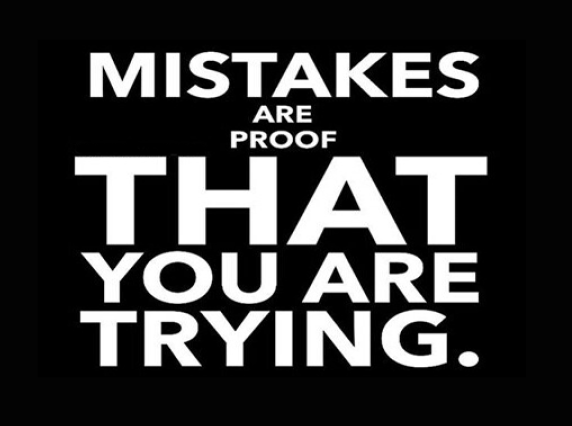
How to turn failure is into success
Contact Me



People will undoubtedly tell you, “I told you so,” and, “You should have listened to me when you fail.”
Ignore those people. Ignore the naysayers. Surround yourself with people who push you forward, don’t push you back.
Living a life that’s completely safe all the time isn’t living. Watched J.K. Rowling’s Harvard commencement speech below; then, you walked away with a better understanding of this.

One of the best ways to recover from failure is to understand that it’s alright to fail. If you were to conduct several searches on the Web, you would find countless stories about failure from the world’s most successful people It’s okay to fail. But it’s not okay to give up.
Even if you failed and that failure was excruciating, it’s not okay to give up. Keep failing over and over again if you have to. Keep on doing it until you succeed. Success will taste so much sweeter when you reach it.
Pushing forward and not giving up is possibly one of the best ways to recover from failure. Remember, it’s not an actual failure unless you throw in that proverbial towel and wholeheartedly give up forever.


Although failure symbolizes pain, and we’ll do more to avoid pain than gain pleasure, we have to realize that it’s okay to fail. When we realize the importance that failure has played in the lives of the most successful people, it’s far easier to reach this understanding.
Failure will take you on a journey you might not want to go on. But, the reality of the situation is that those journeys will help mold and shape you into a better person.
Recovering from failure becomes far more effortless with the knowledge and experience of that failure under our belts. And there’s simply no way forward in life without failure.

If you’ve failed in life, you can use that as leverage to recover from it and help propel you forward in the future. Failure can be an excellent platform for growth that is simply unmatched.
To leverage your failures, you have to illuminate them in your mind. Write out what you failed at and why you failed. Did you have deep enough meaning for your goals in the past? What could you have done differently?
How will you tackle those failures in the future when you’re faced with them? How will you learn from the past to help shape a bigger and brighter future?
Failure isn’t the end of the road as long as you don’t give up. However, if you still believe in your goals, you can use the failure as leverage to push past the old limitations of your past.



Did you have clear and concrete goals in the past? Did you set goals the SMARTER way? Revisit your goals from the past and look at just how clear you were with your goals. Were they precise and exact? Did you visualize them in your mind?
Sometimes, failure results from not setting goals the right way. Of course, we must set goals the right way, but we must track and analyze them monthly, weekly, and daily.
To recover from failure, revisit your goals and redefine them. Then, spend the time necessary to analyze and adjust where necessary.

Want to recover from failure? Create a Massive Action Plan. Take your goals and lay out a plan for how you’re going to achieve them. What will you do next time it rears its ugly head in the face of failure?
When we have a massive action plan, we have a systematic way of achieving the goals that we set for ourselves. Once we realize that those goals won’t be simple to achieve, we can approach things with a more long-term frame of mind.
Set out a solid action plan that will help you push past the stumbling blocks of life, and watch as you slowly but surely recover from any setbacks, upsets, or failure